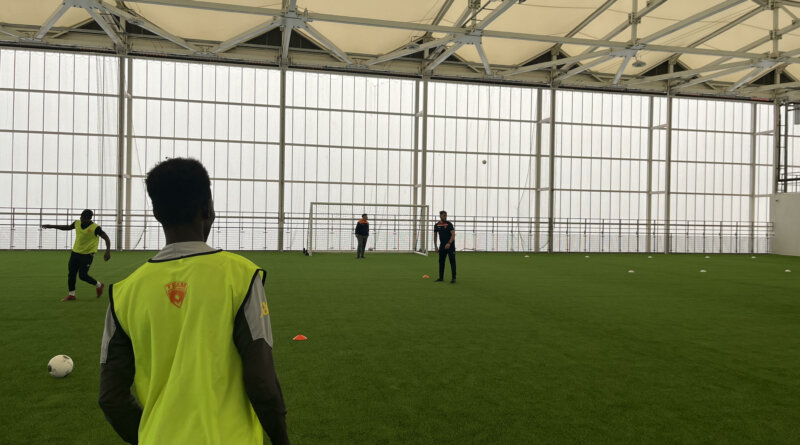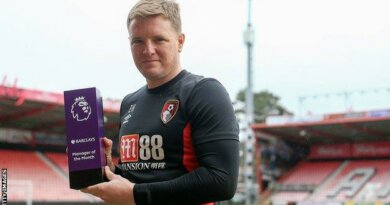Beacon of Support: The project helping new communities integrate into Sunderland
Team Sunderland’s International Outreach Programme has provided the opportunity for hard to reach groups to be introduced to grassroots football.

Weekly sessions, hosted by volunteer coaches who are students at the University of Sunderland, have provided an outlet for groups largely consisting of refugees and asylum seekers to participate in physical activity in a new community.
The scheme has earned the recognition of BUCS (British Universities & College Sport) for its outstanding contribution to the community, earning Team Sunderland a portion of funding earlier this academic year by BUCS and the FA after a rigorous application process.
Sean Lofting, BUCS national football development officer, travelled to the Beacon of Light in Sunderland on Friday, March 15 to see the project in action and to create a video showcasing the impact of the programme; finding himself impressed with the work that had been done to facilitate the sessions.

“It’s absolutely fantastic seeing the work that Team Sunderland has done to create a project that has such a big impact on people’s lives. Michelle (Price) is here from the housing group, who works in bringing the refugees and asylum seekers over each week, and the way she talks about the project really brings to life what it means to people.
“It’s not just coming down and playing football for a little bit, this is their chance to get outside for one or two hours a week away from the hotels that they’re stuck in and it gives them a chance to partake in physical activity.
“It’s so crucial to give people those opportunities when they’ve had to go through a lot in their lives. That’s why we wanted to work with the University of Sunderland because this project has such a big impact on the community in a space where it’s really needed.”
The aforementioned Price, who works as a welfare support officer helping to liaise with those coming into the country seeking refuge or asylum, knows all too well the difficulties that participants face in the scheme; and just how beneficial these sessions have proved.
“It is absolutely phenomenal what this does. They look forward to this all week, and they really enjoy getting out and being able to mix with other people, this two-hour slot on a Friday afternoon when they can come out and blow off a little bit of steam.
“It has the biggest impact on their mental health. When they come into the country, they have been through such traumatic events; and trauma even just arriving in the country.
“They are the most pleasant and grateful people, even though they have nothing, they are just so grateful to be here, to be safe. I can’t say anything else other than they are the nicest bunch of guys I have ever worked with.
“I thought at first that a lot of people from the same cultures would stick together, but I haven’t really noticed that. A lot of them can speak some English and I don’t see separate groups, they all tend to gel together and they’re very supportive of each other. I think the only thing that can keep them separate is if there is a language barrier.”

Though the potential language barrier may cause a slight hindrance to some within the housing group setting, there is one commonality that unites them in Team Sunderland’s weekly sessions – football.
The student coaches who are running the programme will receive FA-approved coaching awards as part of their volunteering hours. Amongst the team of coaches are Lewis Wilkinson and Joshua Reedman, who both focus on making the sessions as enjoyable as possible.
“It’s great to see everyone interacting with everyone else, and they’re so respectful to us coaches as well as each other,” said Wilkinson.
“Everyone loves to play football, and that’s one thing that we’ve all got in common. We try to make it so it’s not all fitness or anything like that, we make it so anyone; any shape or size, can come and enjoy it, then leave with a smile on their face.”
“I’ve found that nice simple drills work best, ones that keep them entertained and keep them fun,” added Reedman. “We just treat them like any of your normal lads at the park going for a kick-about. We’re not here for a club, we’re not here for an end-of-season tournament. As long as we treat it like a fun session, they enjoy it like a fun session.”




